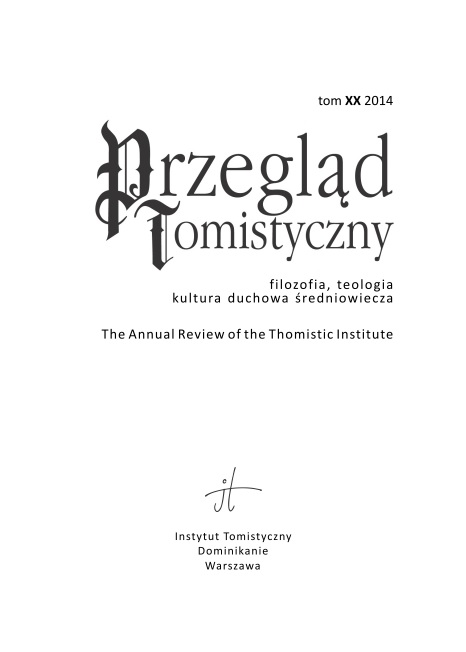MICHAŁ MROZEK OP, A Critical Assessment of a Book by Tadeusz Bartoś Entitled „Koniec prawdy absolutnej” („The End of Absolute Truth”)

Tom XVIII: 2012
Filozofia — Teologia— Kultura duchowa średniowiecza
ISSN 0860-0015
e-ISSN 2544-1000
SUMMARY
This article is a critical assessment of a book by Tadeusz Bartoś entitled Koniec prawdy absolutnej (The End of Absolute Truth). Bartoś’s intention is to free Aquinas from Thomists’ overly scholastic interpretation of his work and to present the medieval theologian as a precursor of postmodernism.
Bartoś’s relationship to Saint Thomas is ambivalent. Although he affirms the genius of Aquinas, and in particular the value of his apophatic theology, Bartoś criticizes Thomas for, among other things, the inconsistency and even failure of the synthesis he attempted.
Bartoś cares about reaching the contemporary person, who has a postmodern sensibility. He thus denounces Thomists and, more generally, the abuses which arise from the belief that one can possess absolute truth. Bartoś affirms the value of the leading postmodernist thinkers and the notion of the end of metanarratives.
This article’s critique of Bartoś’s book focuses on the weaknesses of the postmodern worldview he adopts. To Bartoś apply all of the observations that A. Bronk has made of the methodological and substantive problems of postmodernism. The foremost of these is a lack of critical perspective on postmodernism’s own philosophical postulates. Bartoś does not undertake such critical reflection, nor does he seem to recognize the need for it. He appears unaware that his own critique of others’ positions, which is often ambiguous and authoritarian, emerges from a dogmatic position not subject to the radical relativity and impermanence he applies to others’ views. Bartoś tries to assert general truths and make assessments of the history of Thomism that are in some sense objective while denying others the right to do the same. The ideas advanced by Bartoś could lead, in practice, to an uncritical acceptance of the worldwide cultural revolution now being carried out in the name of postmodernism, which, as M. Peeters has pointed out, is driven by ideology and threatens human freedom and culture in the broad sense.
Bartoś’s book is an interesting example of a superficial reading of Saint Thomas. Its arguments may become part of the eclectic mix of postmodern ideas. Yet it is essentially a deconstruction of the theology of Aquinas and his belief in the truth revealed by Christ. Any ultimate truth is submerged by Bartoś in the quicksand of apophatic skepticism. He attempts to convince his readers of the necessity of rejecting a priori any possibility of the revelation of ultimate truth. That would include, among other things, the mystery of the Incarnation.
